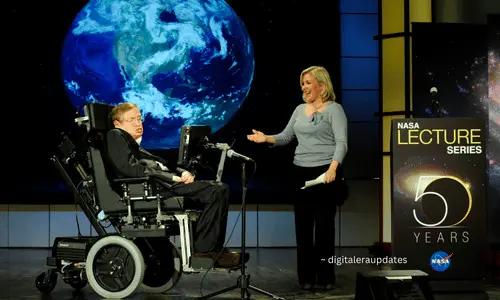
Stephen Hawking (1942-2018), was internationally revered for his groundbreaking research into black holes and general relativity, but beyond these scientific contributions, used his platform to talk about some of humanity’s biggest challenges and existential threats over time – from aliens to potential global destruction – often making headlines and sparking considerable discussion. Here, we take a look back at his most famous predictions to assess whether they’ve come true or not.
- Artificial Intelligence (AI) Predictions: Stephen Hawking has previously warned about how artificial intelligence poses an increasing danger to humanity, believing if AI surpasses human intelligence it may result in unpredictable and possibly dire repercussions for everyone on earth.
Current Status of AI: Artificial intelligence has seen rapid advancement over recent years, becoming ever-more sophisticated systems. Although no major incidents have taken place yet, concerns regarding AI safety and ethics continue to surface; organizations and researchers alike are working actively on safeguarding its beneficial aspects while remaining consistent with human values – Hawking’s prediction illustrates this ongoing work and their significance.
- Climate Change Prediction: Stephen Hawking was often vocal in warning of climate change’s grave risks to our world’s ecosystem if left unaddressed. He warned of its possible catastrophic results without intervention by humanity.
Current Status: Climate change is an evident and on-going challenge that should concern us all, with rising global temperatures, extreme weather events, and increasing sea levels all providing evidence supporting Hawking’s concerns about it. While efforts such as Paris Agreement strive to mitigate its negative effects, its scale remains significant and immediate.
- Nuclear War Predictions: Stephen Hawking predicted that nuclear weapons and their potential use in warfare posed an existential risk to humanity, creating the risk of nuclear conflict as an existential risk for all peoples on Earth.
Current Status: While nuclear war remains an imminent risk, geopolitical tensions on regions like the Korean Peninsula and among nuclear-armed states still pose a potential danger. Therefore, efforts to limit nuclear arsenals and mitigate proliferation must continue as measures against it.
- Prediction of Pandemics
Hawking has expressed grave fears that pandemics pose an immeasurable danger to humanity given our increasingly interdependent world population.
Current Status: The COVID-19 pandemic has provided tangible proof that Hawking was right. Its rapid spread, as well as its dramatic ramifications on global health, economies, and daily life demonstrate just how severe pandemics can be; and also highlight their importance of preparation and global cooperation when facing such threats.
- Alien Contact Prediction: According to Hawking’s analysis, contact between humanity and advanced alien civilizations could potentially pose grave threats. He likened such contact to European colonization of North and South America which resulted in devastating results for native populations living there.
Current Situation: At present, no contact between alien civilizations has been confirmed; however, SETI searches continue in earnest while new exoplanet discoveries in habitable zones keep that possibility alive. Professor Hawking stressed the necessity of carefully considering all implications from any potential contact attempts before taking such a leap forward.
Hawking advocated space colonization as an insurance against global catastrophe on Earth.
Current Status: Attempts at space colonization have only just begun, with companies such as SpaceX seeking to establish human settlements on Mars. While significant technical and logistical obstacles still stand in its path, progress in space exploration technology continues apace; keeping Stephen Hawking’s vision alive.
Conclusion
Stephen Hawking’s predictions regarding humanity’s future challenges continue to resonate today, though not all have come to pass exactly as predicted. Yet many align with current global concerns like AI advancement, climate change impacts and pandemic outbreaks; all echo his foresightful warnings of possible outcomes of nuclear warfare or pandemic outbreak. Likewise his emphasis on scientific advancement and preparedness as means of dealing with these uncertainties remain relevant as humanity navigates an unpredictable future.
